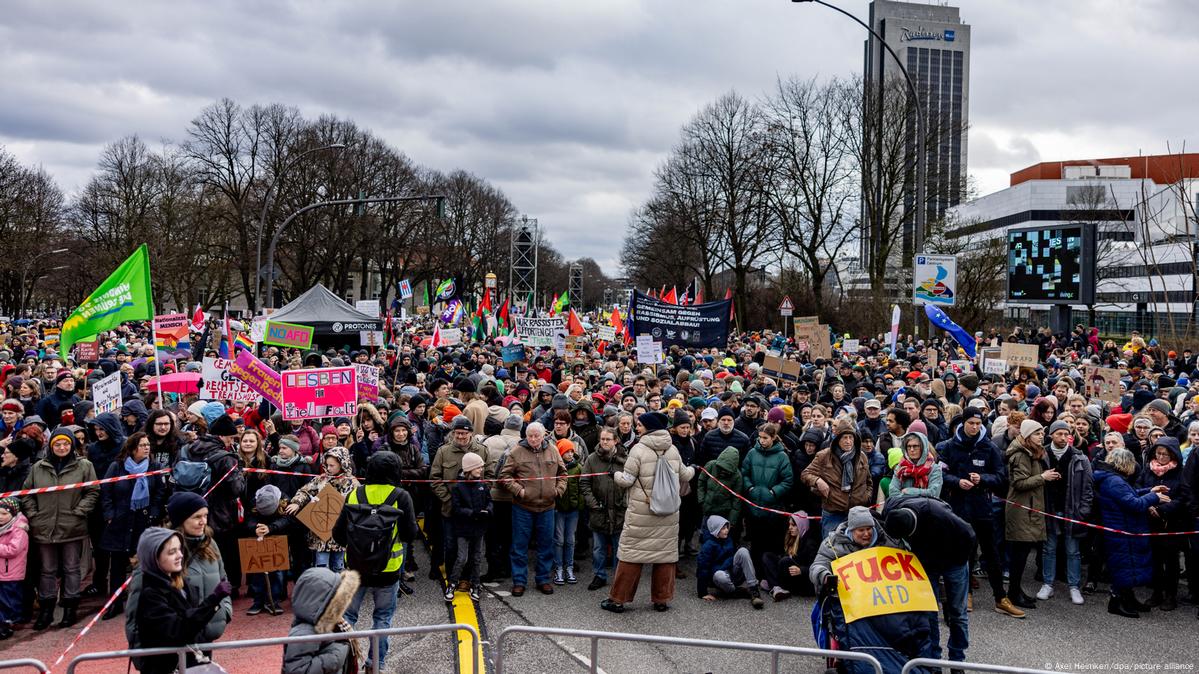
On Saturday, April 27th, the streets of Hamburg, Germany, witnessed a demonstration that many have labeled as concerning. Over 1,000 protesters gathered, calling for the establishment of an Islamic state in the country while holding signs that declared, “Caliphate is the solution.” This demonstration, organized by a controversial group known as Muslim Interactive, coincided with intensifying anti-Israel protests around the world.
Context and Background
The protest in Hamburg came amidst growing global outrage over Israel’s offensive in Gaza, which has resulted in the deaths of thousands. Many Muslim groups have criticized Germany for its support of Israel during the conflict. This demonstration was particularly significant due to its scale and the extremist views expressed.
The Group Behind the Protest
Muslim Interactive, the group that organized the protest, has been labeled as extremist by Germany’s domestic intelligence services. According to the group’s social media, the protest aimed to counter what they perceive as the demonization of Islamic life in Germany. A translated post on X (formerly Twitter) stated, “We will raise our voices together in Allah to gather against Islamophobic reporting both in recent weeks and in recent months.”
Government Response
The German government has responded with strong statements. Chancellor Olaf Scholz, at a press conference following the rally, asserted that “all Islamist activities must be tackled using the possibilities and options of our constitutional state,” and promised that any criminal acts would be prosecuted. German Interior Minister Nancy Faeser also vowed to take tough action against Islamist terror propaganda and anti-Semitic hatred, declaring, “If you want a caliphate, you’ve come to the wrong place in Germany.”
Implications for Germany
The Hamburg protest highlights a troubling rise in extremist activities in Germany. The visibility and scale of the protest indicate an urgent need for German authorities to address radicalization effectively. While the government has promised consequences and tough actions, these must translate into concrete steps to curb the spread of extremism.
The potential for violence and terrorism is a primary concern. As extremist ideologies gain traction, the risk of attacks within Germany increases. Past incidents, such as the 2016 Berlin Christmas market attack, have shown how deadly such threats can be. The call for a caliphate could foster parallel societies, where individuals prioritize allegiance to a hypothetical Islamic state over their loyalty to Germany, weakening social cohesion and eroding trust between communities.
Broader Implications for Europe
The protest in Hamburg is also a wake-up call for the rest of Europe, already grappling with challenges posed by terrorism, immigration, and cultural integration. The spread of radical ideologies threatens to further fragment European societies, exacerbate existing tensions, and undermine core values of democracy, equality, and human rights.
One significant concern is the increased risk of violence and instability. As extremist ideologies spread, the likelihood of terrorist attacks grows. European countries, each with their own histories and policies regarding integration and counterterrorism, must collaborate to address this shared threat. The European Union’s role in fostering cooperation among member states is now more critical than ever.
The call for a caliphate also poses the risk of creating parallel societies within Europe, operating with different sets of rules and norms. This fragmentation challenges the unity and coherence of European nations, highlighting the need for robust integration policies that encourage a shared sense of identity and commitment to European values.
Addressing the Root Causes
Addressing the root causes of radicalization is essential, not just for Germany but for the whole of Europe. Many European countries face similar issues of poverty, social exclusion, and disenfranchisement that can fuel extremism. By working to alleviate these conditions, Europe can create environments where radical ideologies struggle to take root. Policies that promote economic inclusion, social cohesion, and political participation are vital in this regard.
Moving Forward
While the Hamburg protest underscores significant challenges, it also presents opportunities for growth and improvement. The need for decisive action against extremist ideologies and addressing the root causes of radicalization is clear. By fostering inclusive societies, promoting open dialogue, and protecting democratic values, Europe can ensure that the call for a caliphate remains a fringe phenomenon rather than a mainstream movement.
The future of Germany and Europe depends on their ability to navigate these complex challenges effectively. Through collaboration, resilience, and a commitment to shared values, the continent can emerge stronger and more united. Although the protest is a reminder of the ongoing struggle against extremism, it also offers a chance to reaffirm and strengthen the principles that define European societies.Top of Form



